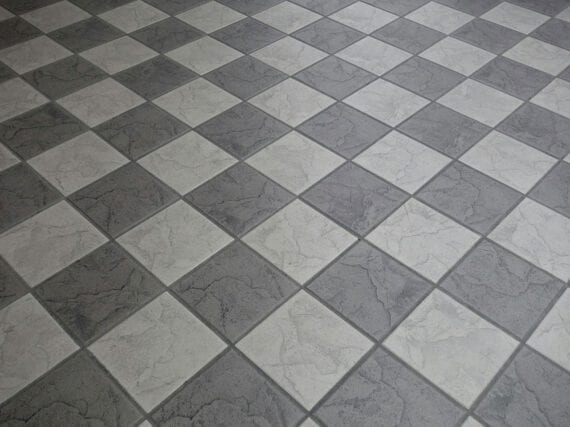We continue the series of articles about ceramic tiles. In previous articles we have dealt with current trends, and we also suggested what to choose for the wall and what for the floor. Below you will find information about the parameters that should be taken into account when deciding which ceramic tiles to choose in the end.
The article is available for companies as sponsored
The most important parameters of ceramic tiles
The main thing when choosing ceramic tiles is their use. You should pay attention to other parameters when choosing bathroom materials, others, if they are to be arranged in the kitchen. The most important properties are basically three: water absorption, stain resistance and mineral hardness.
Water absorption
The parameter informing us about e.g. frost-resistant properties and the general reaction of the tile with water is the degree of water absorption. It is determined by the type of base mass and glaze, surface porosity and pigment saturation. The lower the water absorption, the less water penetrates into its structure. Frost-resistant tiles are those with water absorption below 3%, the so-called group I. Water absorption in the range of 3% - 10% is the so-called group II. Such tiles can be laid on walls and floors without rising moisture from the substrate. However, most of the products are characterized by water absorption above 10%. It is worth remembering that they are only suitable for laying on walls.
Stain resistance
The stain resistance parameter only applies to glazed ceramic tiles. It tells us how easy it is to remove dirt from them. They are categorized on a scale of 1-5, the highest one means that we can remove even the toughest dirt from such material. It is different in the case of tiles that have a stain resistance level of 1 - in their case, stains will be visible even after removing the dirt.
Hardness of minerals
Whether the tiles are scratch-resistant determines the hardness of the materials. It is given on the Mohs scale from 1 to 10. Various substances are used in the production of ceramic tiles - from talc to diamonds. Depending on which of them are used, their scratch resistance will be different. For example: material on a scale of 1 to 2 can be easily scratched with a fingernail, while those with a hardness of around five will only be scratched with a nail. If ceramic tiles are to be laid at home, you can safely decide on a hardness within the limits of 5 or 6. If they are to be laid, for example, in a garage - choose materials classified as 7 or 8. They will guarantee many years of use without visible signs of wear.
What else should you pay attention to?
Another important point is to carefully check the provided tiles. They should not have jagged edges, because on the one hand, it reduces the aesthetic value, and on the other hand, it reduces the strength. It is also worth buying materials from one production series to be sure that all tiles will be in the same shade.
Read our next article: Warm windows ...
What to choose?
We will be interested in various parameters depending on whether the tiles are to be arranged in the kitchen, bathroom or hall. If you are not sure what to choose - contact the experts. They will also help with the selection of other building materials, as well as during the activities in the case of transport to another country.



